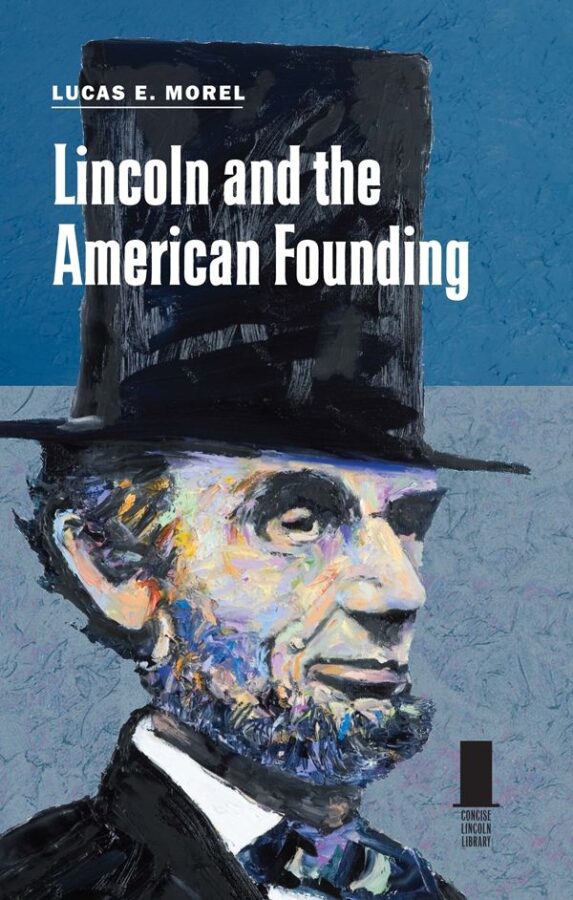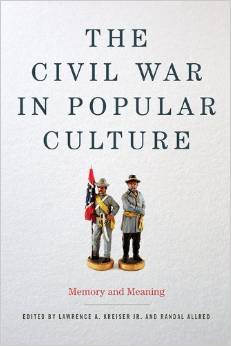Lincoln and the American Founding by Lucas Morel. Southern Illinois University Press, 2020. Cloth, ISBN: 978-0-8093-3785-9. $24.95.
 Abraham Lincoln still resonates with people throughout the world who call upon him for words of wisdom during times of conflict. His poetic prose dedicated to the principle of democracy advocated both the preservation of the Union and the abolition of slavery. Lucas Morel’s Lincoln and the American Founding shows how the sixteenth president used his knowledge of the nation’s founders to oppose slavery.
Abraham Lincoln still resonates with people throughout the world who call upon him for words of wisdom during times of conflict. His poetic prose dedicated to the principle of democracy advocated both the preservation of the Union and the abolition of slavery. Lucas Morel’s Lincoln and the American Founding shows how the sixteenth president used his knowledge of the nation’s founders to oppose slavery.
Throughout his political career, Lincoln looked back “to the founding generation and [saw] fixed ideals of human nature, civil society, and legitimate government ‘applicable to all men and all times.” According to Morel, “Lincoln saw the Declaration as the fundamental charter of American self-government.” The success of American self-government required a rule of law that gave people the “right to rise.” The ideas pronounced in the Declaration were so essential that “Lincoln praised Jefferson for basing American independence on a standard by which their own future conduct could be judged.”
During the Lincoln-Douglas Debates, Lincoln returned to the founders and the Declaration of Independence; he encouraged citizens to see how maintaining the Union and ending slavery was essential to the preservation of their freedoms. So too did Lincoln’s opponent invoke the founders. Senator Stephen A. Douglas championed “popular sovereignty,” a policy that would allow states and territories to decide for the themselves whether to allow slavery. In Douglas’ speech at Springfield, Illinois, on July 17, 1858, the senator stated, “I go for maintaining the confederation of the sovereign States under the constitution, as our fathers make it…leaving each State at liberty to manage its own affairs and own internal institutions.”
As it turned out, Lincoln lost the Senate seat to Douglas, but he gained national recognition for his interpretation of the Declaration and the moral integrity of the country.
In February 1860, in his Cooper Institute Speech, “Lincoln concluded that the unity Washington hoped for was a unity of moral purpose for the new republic—a nation that, despite the presence of slavery, would operate according to the principles of consent and the rule of law to secure the blessings of liberty, which required the eventual abolition of slavery.” A year later at Independence Hall in Philadelphia, President-Elect Lincoln said, “I have never had a feeling politically that did not spring from the sentiments embodied in the Declaration of Independence.”
After the nation plunged into war, Lincoln focused on reuniting the country by restating the principles of the Declaration. In his 1862 Message to Congress, he stated, “In giving freedom to the slave, we assure freedom to the free, by making freedom available to all we secure it for ourselves.” To preserve self-government, there needed to be self-control among the citizens. For Lincoln, right and wrong were not just decided by the vote, but by moral standards that transcended time and nations.
The inspiration of the founders shaped the political thought and philosophy of Lincoln and his contemporaries. Lessons from the founding had a profound effect on Lincoln’s generation and still hold true to us today. Lincoln showed that as important as the Constitution was, the principles set forth in the Declaration of Independence were to be the moral compass of the country. Morel showcases how the American founding had a profound effect on Lincoln, who was able to utilize the nation’s shared past to build a stronger future. The past always comes forward for evaluation and assessment, although it sometimes threatens to pull the nation apart. Lincoln provides hope that Americans will “seek the better angels of our nature” and find clarity about the true principles of freedom and democracy for future generations.
Anne E. Moseley is Director of Engagement and Curator of the Sangamon Experience, and Acting Director of the Center for Lincoln Studies at the University of Illinois-Springfield.
